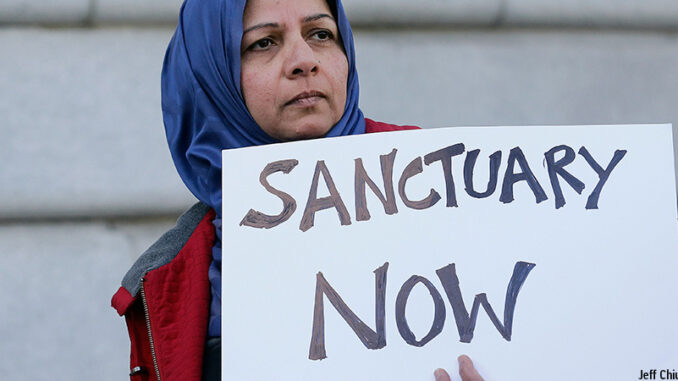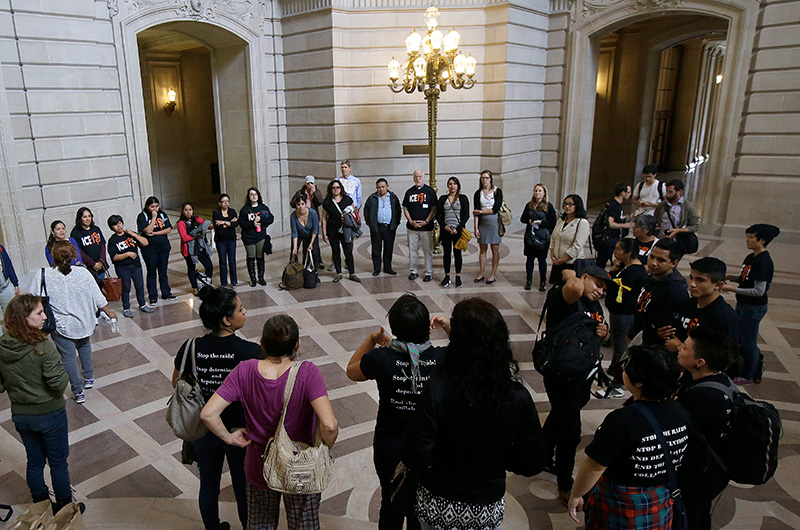
On January 25, President Trump issued a statement that cities and counties refusing to comply with his controversial immigration order would be denied federal funding. There are roughly 400 such “sanctuary cities” around the country, all of which have repeatedly refused to question or detain immigrants in compliance with Trump’s immigration policy. Now, Santa Clara County in California is fighting back. Last Thursday, the county filed the first motion in the country aimed at blocking Trump’s “sanctuary city” order.
Related Link: Learn more about what a “sanctuary city” is by clicking on this link to visit a Washington Post news article.
The Cost of Opposition
Santa Clara County receives nearly $1.7 billion in federal funds, which are used to deliver essential services such as operating the county’s main hospital and public health department. Losing federal funding would cause a major health public health crisis for the county. According to the suit, it is unconstitutional for Trump to revoke this federal funding because doing so infringes on local government control. In other words, the president is not allowed to use federal money as a weapon to punish cities and counties that don’t follow his executive orders.
Meanwhile, law enforcement in many of these cities is caught between one set of instructions from their city government and another from the federal government. Many police officers worry that turning police into makeshift deportation officers will further erode the already-strained relationship between police and the public. If people are less willing to cooperate with police and report crimes because they fear deportation, police argue, then cities will become more dangerous.

This week, the Department of Homeland Security began releasing lists of all the crimes committed by immigrants in sanctuary cities: immigrants who, according to Trump’s order, should have been turned over to Immigration and Customs Enforcement (ICE) and detained or deported. While the sanctuary cities view this list as an attempt to publicly shame them, authorities say the list is only meant to provide useful information to law enforcement officers.

What Happens Next?
The Santa Clara case is likely to be the first of many such cases to come. Already, two cities in Massachusetts–Chelsea and Lawrence–have begun the process of suing the government over the order. Some of California’s largest cities, such as Los Angeles and Oakland, have stated repeatedly that they will not comply with Trump’s immigration directive.
Those in support of the sanctuary cities argue that the issue isn’t about partisan politics, or even about immigration. Rather, they say it is about allowing cities and counties to maintain local control instead of being coerced by the federal government. With enough resistance, they hope, the Trump administration will realize that this order is not constitutional and will need to be rewritten.
A hearing on the Santa Clara case is tentatively scheduled to take place on April 5.
Learn More To hear more perspective on the immigration debate and sanctuary cities in California, listen to the NPR audio story embedded below.
